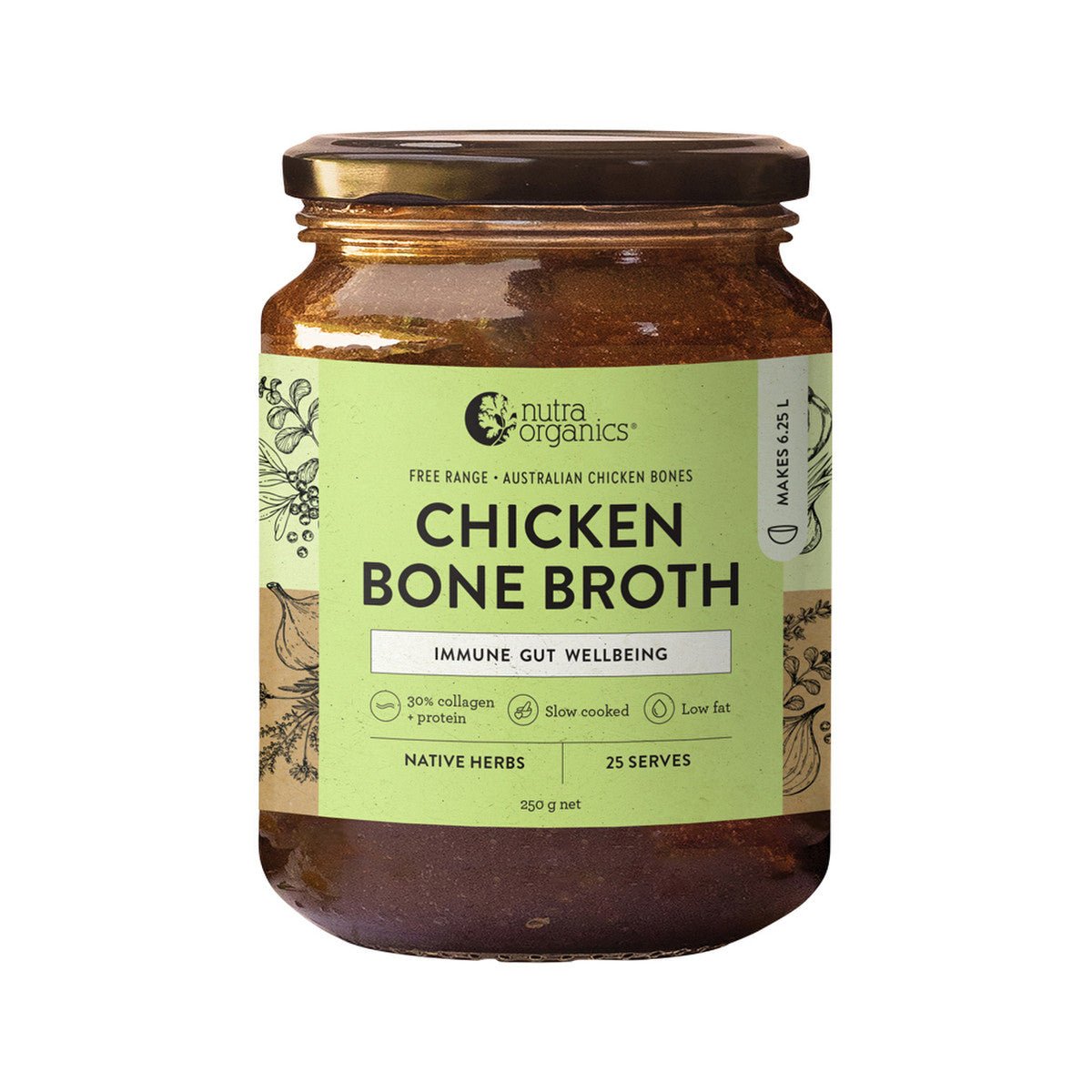Keto flu is a term that people often use to describe a group of symptoms that some may experience when they first start a ketogenic diet. Switching from a regular diet to one that's low in carbohydrates and high in fats can be a bit of a shock to the system. This transition can lead to discomforts such as headaches, fatigue, and irritability—all commonly bundled under the term keto flu. But don't worry, these symptoms are usually temporary and part of the body's adjustment process.
Bone broth has recently stepped into the spotlight as a possible helper during this tricky transition. Known for its rich flavour and nutrient-dense profile, bone broth might just be the comforting cup you need when riding out those initial keto flu symptoms. With the potential to replenish lost nutrients and provide a soothing ritual during a time of dietary change, it’s worth considering how a warm mug of this savoury broth could fit into the keto lifestyle.
What is Keto Flu?
When you decide to embark on a ketogenic diet, your body enters a state of ketosis, using fat as its primary fuel source instead of carbohydrates. During this switch, some people experience what is known as keto flu, an array of symptoms that might feel like a mild version of the actual flu. This is quite common, especially in the first few days of the diet, as the body still craves carbs it used to get regularly.
Keto flu can include:
- Headaches: Often due to dehydration or changes in electrolyte levels.
- Fatigue: A result of your body adapting to a new source of energy.
- Irritability: Caused by carbohydrate withdrawal which can affect mood.
- Muscle Cramps: Due to the loss of minerals like magnesium and potassium, which are essential for muscle function.
Though these symptoms can be uncomfortable, they usually fade away as your body adapts. Staying hydrated, ensuring adequate electrolyte intake, and being patient can help ease the transition.
The Nutritional Benefits of Bone Broth
Bone broth is not just any ordinary broth; it's rich in nutrients like collagen, amino acids, and essential minerals, making it quite the nutritional powerhouse. Collagen, found abundantly in bone broth, is known for its skin and joint health benefits. Amino acids like glycine and proline play a role in supporting your body’s building blocks for protein, critical for repair processes.
The minerals contained in bone broth, such as calcium, magnesium, and phosphorus, contribute to bone health and help maintain electrolyte balance. It's this particular feature of electrolyte replenishment that makes bone broth an excellent ally during the initial phase of a ketogenic diet. Adding bone broth to your diet can deliver not only a sense of warmth and comfort but also fill nutritional gaps left by dietary restrictions.
How Bone Broth Helps with Keto Flu Symptoms
As you embrace a ketogenic lifestyle, bone broth can play an interesting part in your dietary routine. One of its underrated benefits is in the way it delivers electrolytes—a key factor in mitigating keto flu symptoms. When you lower your carb intake, the body tends to shed water weight and with it goes electrolytes. These are crucial for maintaining hydration and nerve function, helping to prevent those pesky headaches and muscle cramps that can arrive with keto flu.
Amino acids in bone broth, like glycine, have their own special perks too. Glycine works behind the scenes to boost overall health by keeping inflammation at bay and supporting gut health. This gentle approach can bring a bit of relief when everything feels off-kilter during the first few days of keto adaptation. Plus, collagen found in the broth helps keep joints happy, making it easier to stay active and stave off any keto-blahs.
How to Incorporate Bone Broth into Your Keto Diet
Thinking about slotting bone broth into your daily meals? It's surprisingly simple, and there are heaps of tasty ways to include it. A warm cup of bone broth in the morning can be a comforting way to start the day. Want to jazz up your cooking? Use it as a base for soups or stews, infusing your meals with a rich, umami taste. You can even try it as a cooking liquid for dishes like cauliflower mash or when baking chicken.
Here’s a nifty way to whip up homemade bone broth:
1. Collect Ingredients: Gather bones (beef, chicken, or fish), two litres of water, a bit of apple cider vinegar, onions, carrots, and any herbs you like.
2. Preparation: Roast the bones in the oven for added flavour. Place them in a large pot with water and add your vinegar and veggies.
3. Cooking: Let it simmer for 24 hours for beef bones or 4–6 hours for chicken bones.
4. Strain and Store: Remove solids and store your broth in the fridge for up to a week or freeze for a month.
Enjoying a Smoother Keto Transition with Bone Broth
Bringing bone broth into your routine isn't just about tackling keto flu; it’s about making each day a little easier. The comforting nature of a warm broth provides a nice anchor for those turbulent days when the body’s crying for carbs. It can also become a ritual, a moment of calm, where you’re giving yourself something nourishing and familiar.
Sticking it out with your keto journey? Bone broth might just be your ticket to a gentler adjustment period. You'll feel more in sync with your body as you both adapt to the changes. Just think of it as one more tool in your keto kit, helping smooth the way to a healthier, more energetic you.
Embrace the benefits of including bone broth in your keto routine by exploring a variety of broths that cater to your dietary needs. At Yo Keto, we offer a range of options to make your transition smoother and help you stay in tune with your keto goals.

